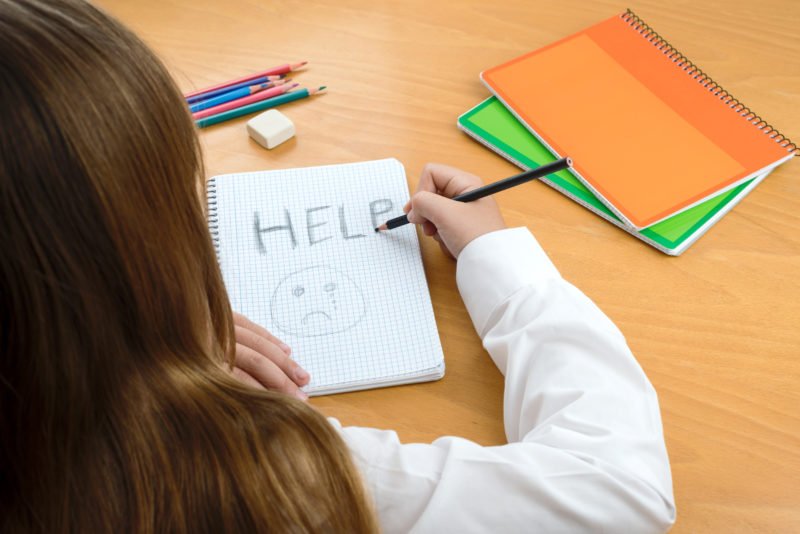Often, mental health issues begin during the school years.
It may seem logical that mental health education should be a vital part of the curriculum and to begin at an early age, yet that is not the reality in most schools. Stigma and misconceptions are prevalent, and knowledge lacking. Yet, since children spend much of their time at school, it’s vital that mental health education become more consistently incorporated into the curriculum.
Across the globe, millions of people are affected by mental illness. In the U.S. alone, it’s been estimated that one in five adults experiences a mental illness each year according to the National Alliance on Mental Health. Additionally, studies by the Centers for Disease Control and Prevention show that one in five children have or had a mental illness, with half of those beginning by age 14.
It’s astounding that with mental illness on the rise, particularly depression, that we are not preparing our children with a baseline understanding of the importance of recognizing mental health issues. When mental illness is undiagnosed, inadequately treated, or left untreated, it can negatively affect children’s ability to learn and grow. It can lead to unhealthy coping mechanisms, and at its most dangerous, result in suicide.
There are several opportunities for mental health education in schools. This starts at eliminating misconceptions and stigmas about mental illness in schools. Children begin their first friendships at school and teenagers shape their self-esteem and self-worth. School is also where kids learn that their behavior and actions towards others can have consequences. Students experience conflict, bullying, exclusion, and can cause serious self-worth issues.
At school, children experience many challenges. Some children are better equipped to manage these challenges than others. Often, anxiety symptoms in children are minimized or ignored completely. Symptoms of anxiety may range from mild to severe, including panic attacks. These symptoms can lead to depression, risk of substance abuse, or diminished performance at school.
Social media usage is also influencing the mental health of today’s adolescents.
Early research is indicating a connection between mental illness and social media use, particularly since pre-teens and teens are active users. However, other studies are showing that online connections with small groups of people might be beneficial. Teenagers are wired to be social, and social media consumption makes this easier. Students that identify with marginalized groups may find support and friendship in online communities when none exist in their schools. Cyberbullying, comparisons, and less face-to-face socializing still keep social media consumption at the top of the list for concerns for our children.
Early intervention is important for children. Before mental illnesses become disabling for students, family, friends, and teachers may notice changes in thinking and behavior. Learning early warning signs and knowing how to take action is important for students to learn. By taking action, it’s possible early intervention can reduce the severity of the illness. Often these signs are subtle, such as feelings of disconnection or apathy. Training in mental health can help students and staff recognize when someone might be in trouble.
When mental health education is part of the curriculum at school, students are better able to recognize when they are dealing with mental health issues and are more likely to ask for help themselves. There should be open lines of communication between school and home with parents able to share their concerns and collaborate with school staff.
Cultural changes often begin with the youngest in our population.
By making mental health education a mandatory part of school and implementing support systems in our schools, we can improve understanding of mental illness and stop stigmatizing mental health issues in the future.
Many schools are on the front lines of realizing the importance of mental health education. Some school districts across the country are now employing mental health professionals that work with teachers and families to support the needs of students. More needs to be done.
If you have a school that does mental health education well, please share what is working.


